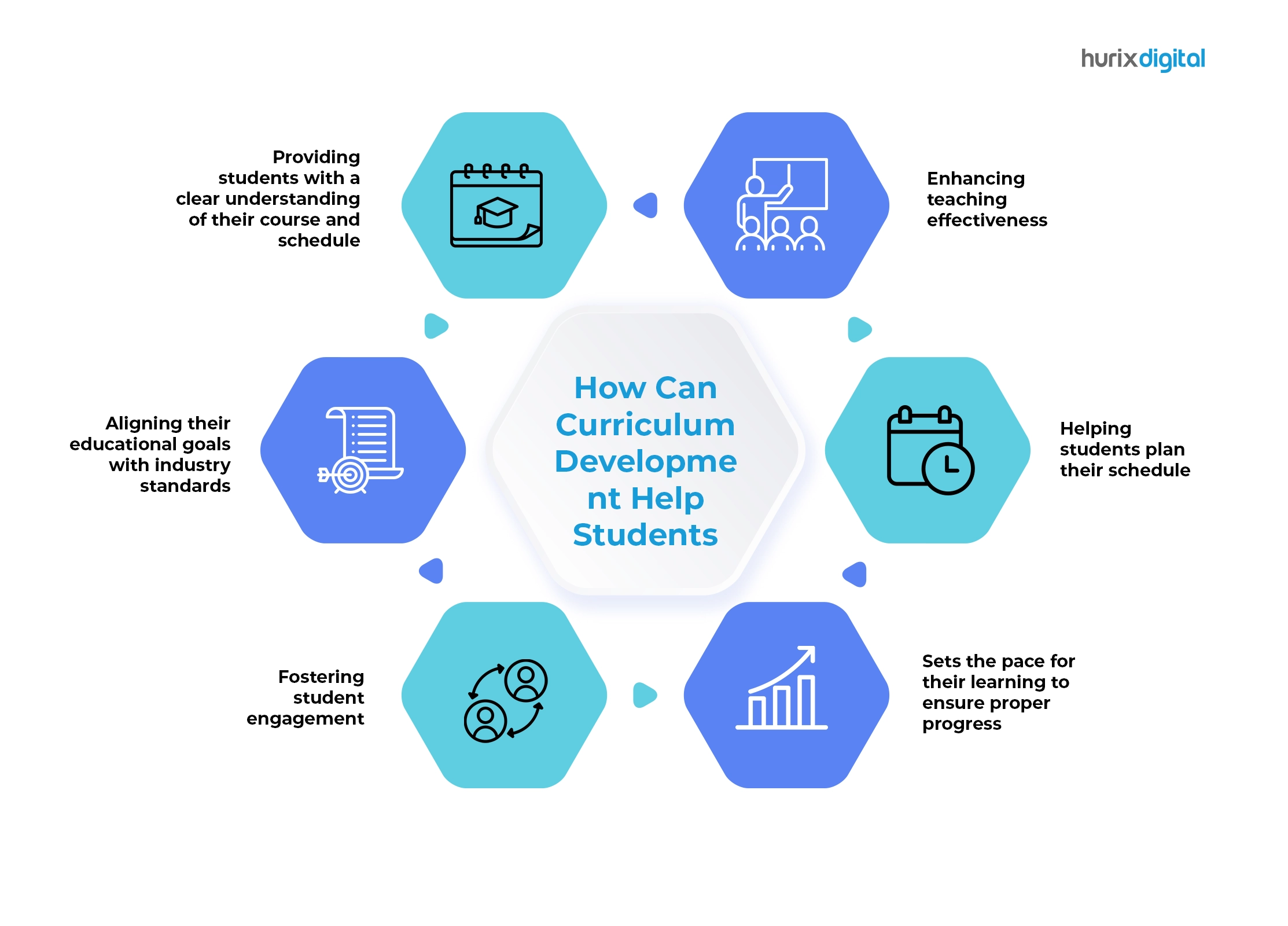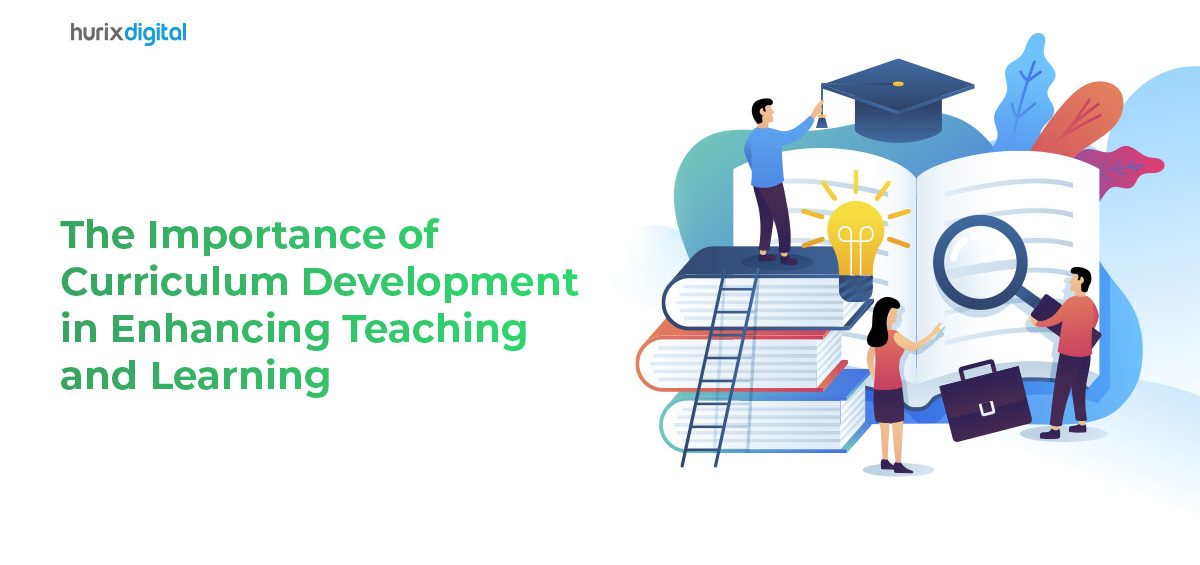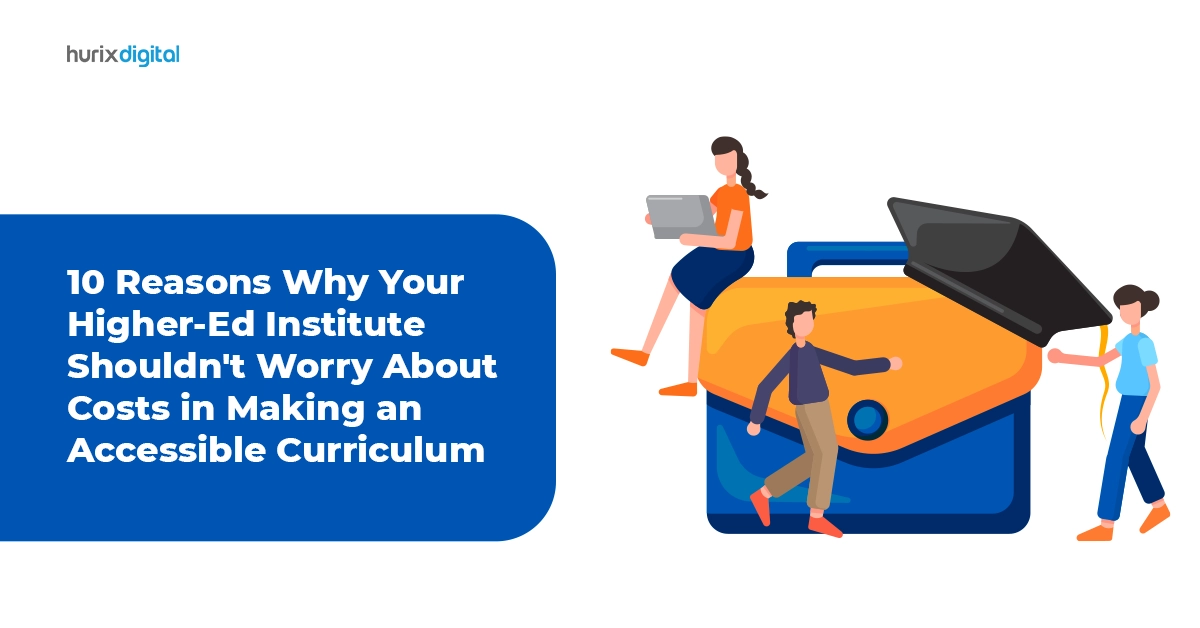The way we impart and gain education today has evolved significantly and for a good reason. Technology and audio-visual aid have made it easy for students to grasp complex concepts. But with the rise in online education, the K-12 curriculum has also undergone a radical shift.
Although most institutions have gone back to traditional classrooms, eLearning in education is not going to go away anytime soon. Be it for brushing up on lessons, self-paced learning, interactive experiences, and even helping with homework or extra-curricular activities; online learning is helping us make education more fun and interactive.
An estimated 5.3 billion people will have access to the internet by the end of 2023, making online education even more accessible to a larger population. This makes curriculum development imperative to help teachers and students, especially since it is essential to leverage these multifaceted learning models to take learning experiences to the next level.
Today we will uncover what curriculum development is all about and examine its role in online program development.
Table of Contents:
- What Is Curriculum Development?
- Who Is Responsible For Curriculum Development?
- How Can Curriculum Development Help Students?
- How Does Curriculum Development Aid In Teaching?
- Conclusion
- Frequently Asked Questions (FAQs)
What Is Curriculum Development?
Before we understand how curriculum development plays a key role in our learning experiences, let us first understand what it is all about.
To put it in simple terms, curriculum development refers to the process of creating educational programs and materials that align with today’s updated educational standards and incorporate subjects or skills that are relevant today and for the future.
It involves researching and selecting appropriate content, designing courses and instruction manuals, evaluating the information already part of the curriculum development, and making updates or changes wherever necessary. The goal is to ensure that students get a comprehensive learning experience that meets their needs and prepares them for the future.
By having a well-planned curriculum, each subject or level gets appropriate attention, which helps to enhance a student’s ability to keep pace and grasp complex subjects.
Also Read – The Importance of Curriculum Planning for Effective Learning
Who Is Responsible For Curriculum Development?
A look at the traditional educational pattern will tell you that the responsibility of developing curriculum for K-12 schools and other institutions is always with a state and central government subject. Mostly, the government will appoint educational bodies tasked with ensuring that educational standards are set and maintained.
However, since the world around us is changing rapidly, so should our educational requirements.
As outlined in the “Education 2030” paper by the Organization for Economic Co-operation and Development (OECD), “The concept of ‘curriculum’ should be developed from ‘predetermined and static’ to ‘adaptable and dynamic.’ Schools and teachers should be able to update and align the curriculum to reflect evolving societal requirements and individual learning needs. Teachers, students, and other relevant stakeholders should be involved early in curriculum development to ensure their ownership for implementation.”
The shift in how knowledge is shared and taught makes it important for all stakeholders to come together and provide feedback to make setting a curriculum more interactive. As per estimates, the market size of online K-12 education will reach $12,930 million by 2023, from $8011 million in 2022.
Thus, with the growing popularity of online education, online program development cannot follow the preset rules and needs a solid partnership of teachers, students, and digital education content providers.
How Can Curriculum Development Help Students?

A well-set-out curriculum development is essential for educators and helps students in more ways than one. For example, since most modern curriculums use interactive learning features, students can access an engaging educational experience.
They can go beyond the traditional textbook and grasp complex concepts using interactive videos or audiobooks. Plus, this also allows education to be more accessible for all, especially for differently abled students.
Having a set curriculum helps students in several areas, such as:
- Providing students with a clear understanding of their course and schedule
- Aligning their educational goals with industry standards
- Fostering student engagement
- Enhancing teaching effectiveness
- Helping students plan their schedule
- Sets the pace for their learning to ensure proper progress
How Does Curriculum Development Aid In Teaching?
When it comes to the benefits of curriculum for teachers, there are several areas that we can explore.
First, the curriculum development helps teachers organize and present the learning structurally, enabling learners to grasp it effectively. Thanks to a proper curriculum, lessons aren’t taught haphazardly, allowing teachers to set the pace for their learning to be imparted properly and efficiently grasped by the students.
Teachers can also introduce new-age learning methodologies like quizzes, assignments, objective tests, group discussions, and more to add value to the defined curriculum.
Overall, this helps educators, instructors, and teachers to:
- Get a clear roadmap of instructions
- It helps teachers understand what students should know
- Enables teachers to plan their lessons effectively
- Supports teachers in developing effective teaching methods and practices
- Encourages teachers to go beyond the normal and use interactive teaching strategies
- Enhances teacher effectiveness and student engagement
- It helps teachers stay updated with the latest information and trends in the educational system
Thus, it provides a roadmap for learners and teachers and helps align educational goals to the latest standards. In addition, an effective curriculum can help foster student engagement, help them understand expectations, and prepare them for future success – whether in further education, career, or life.
Conclusion
In conclusion, curriculum development is crucial for education and improving learning outcomes. However, this is not a one-time process. It is essential to be at pace with changes happening around us. Today’s curriculum needs to incorporate interactive technology to help students understand concepts, learn new skills, and get the power of self-paced education.
Institutions and online education providers can always work with industry experts and teachers and even take feedback from parents or students for incorporating the best practices in online curriculum development for higher education or K-12 students.
You can work with K-12 curriculum development companies to simplify this process and get a solid foundation to build upon. Digital education content providers and K-12 online curriculum service providers have a rich repository of interactive content for students and teachers.
HurixDigital is one such provider, with access to over 6000+ interactive and high-quality content that will help you craft the right curriculum for your students. Get in touch today to learn how to leverage modern technology to design a futuristic learning experience ideal for students and teachers.
Also Read – The Importance of Curriculum Planning for Effective Learning
Frequently Asked Questions (FAQs)
1. How does curriculum development benefit students?
A. Curriculum development benefits students by providing a clear course structure, aligning educational goals with industry standards, fostering engagement, enhancing teaching effectiveness, helping with schedule planning, and setting the pace for learning progress.
2. How does curriculum development aid teachers?
A. Curriculum development helps teachers organize and present learning effectively, enables structured teaching, introduces modern learning methodologies, and keeps educators updated with educational trends.
3. Why is curriculum development important in online education?
A. Curriculum development is essential in online education as it allows for interactive learning experiences, enables self-paced education, and helps students understand complex concepts through technology.
4. How can stakeholders like teachers and students contribute to curriculum development?
A. Stakeholders, including teachers and students, can contribute to curriculum development by providing feedback, insights, and ideas to create a more interactive and adaptable curriculum that meets evolving societal requirements and individual learning needs.
5. Can curriculum development adapt to changes in the educational system?
A. Yes, curriculum development can and should adapt to changes in the educational system to stay relevant. It should incorporate new teaching methods, technologies, and feedback from stakeholders to meet current and future educational needs.











